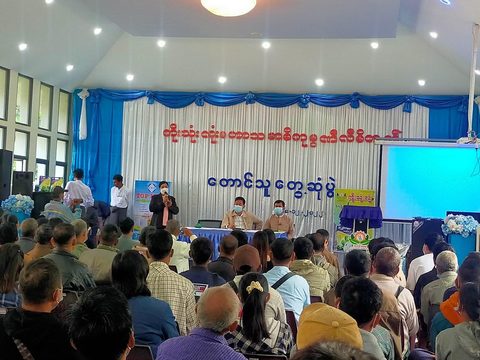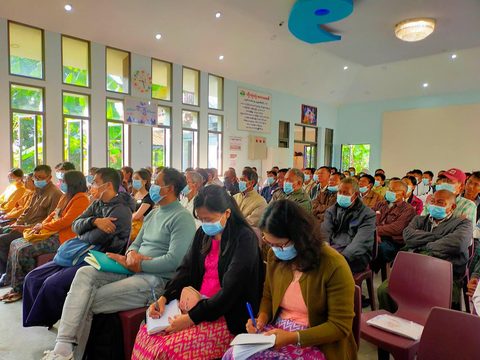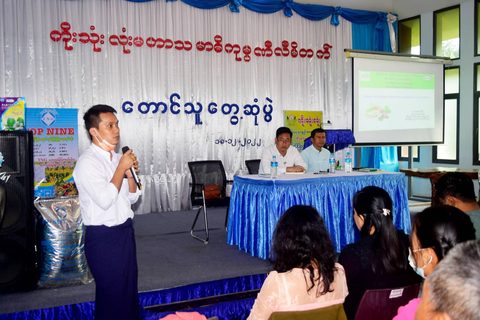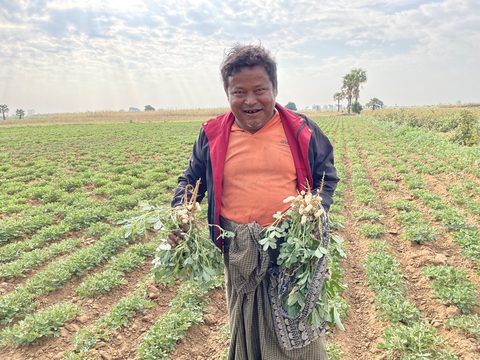Extra oil is not just “peanuts”
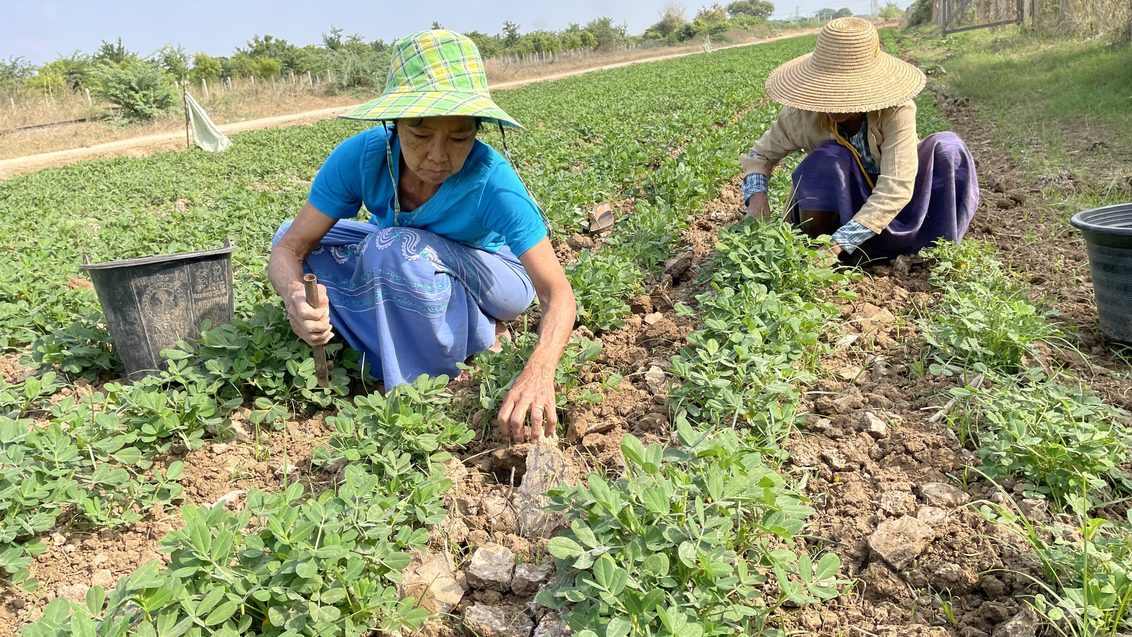
Groundnut (peanut) is an important crop in Myanmar. But there is scope for quality improvement. Our Foundation and partners are helping smallholders get better varieties – particularly those containing more oleic acid.
Myanmar is the world’s leading source of sesame. But it also ranks high among the producers of groundnuts and their oil. Most of the nuts come from the Central Dry Zone around Sagaing, Mandalay, and Magway. “An issue for many smallholders here is access to improved varieties”, says Ye Pyae Kwaw from our Seeds2B team. “So far, the good seed has only been available for about 30% of the groundnut area.”
What does “good” mean? Food processors prefer nuts with a uniform size of kernels; oil producers want varieties with high oleic acid (HOA) content. Oleic acid is used in many foodstuffs and is also a major component of soap. “Experts predict that HOA will become a high-value market”, comments Ye Pyae. “Oleic acid can be used, for example, to extend shelf-life, which helps reduce food waste.”
Internationally, our Foundation frequently works in public-private partnerships. “We’re following that approach again for groundnut in Myanmar”, says Hervé Thieblemont, Head of Seeds2B Asia. “Here, we’ve engaged with ICRISAT and Triple Nine Great Integrity Co., Ltd.” ICRISAT, a public research institution, provides the genetics and organizes the material transfer. Triple Nine is a local seed company co-investing in development and delivery of the improved varieties.
Triple Nine and ICRISAT signed the crucial Material Transfer Agreement in 2022. This enabled dispatch of HOA groundnut seed samples. Our Foundation is supporting market feasibility research, field trialing, seed multiplication and maintenance of early-generation seed. “Trialing continues this year on variety adaptation and performance”, explains Ye Pyae Kwaw. “The key question is: How much extra income do smallholders get from the HOA seeds’ quality and yields?”
The aim is to enhance value by creating a premium market segment. The resulting higher income would help improve the quality of life across smallholder communities.
Seeds2B in Myanmar: Background
In 2016, our Foundation organized an analysis of “Opportunities for the Myanmar Seed sector”, funded by the Asian Development Bank. Based on the findings, we focused on pulses and oilseeds in the Central Dry Zone. In 2019-20, together with the Department of Agricultural Research, we worked to create a conducive environment for seed sector development. As in other countries, our Seeds2B team emphasized a market-led approach to the introduction of new varieties. Since then, we have continued engaging with local seed companies, often in partnership with ICRISAT. The Syngenta Foundation’s Seed Commercialization Guideline helps the business partners to launch and sell improved varieties successfully.

